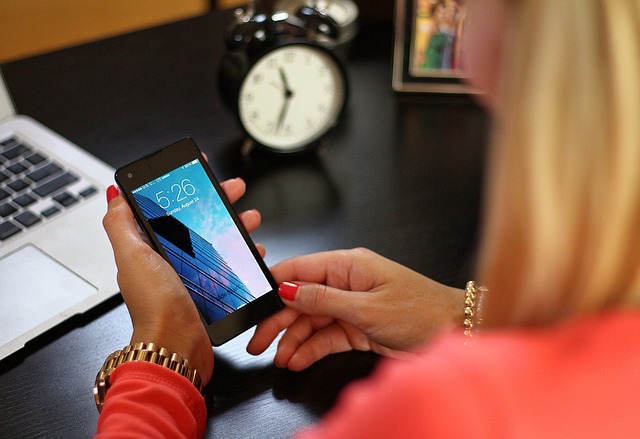The days of being anchored to a cubicle for a standard eight-hour workday are becoming a thing of the past, as remote work begins to overshadow traditional workplace practices.
To many people, this means more time with family, flexible hours, and being able to work from the comfort of your couch — but it can also mean the introduction of workplace technology that creeps into your personal life when you’re off the clock.
Many companies are now ditching traditional email and opting for project management platforms such as Taskworld, which allows you to access your work, chat with your team, and safely share files from all your devices.
The goal of these platforms is to streamline project management and team communication, but it also raises the question of whether it makes employees feel obligated to stay connected 24/7.
A recent study by Workplace Trends and CareerArc found 64 percent of employers reported they expect staff to be reachable outside of the office, even on personal time. This might have to do with the majority of workers who now find it second nature to scroll through Instagram, Facebook, and their work email as they’re winding down after work.
Taskworld chief executive officer and serial entrepreneur Fred Mouawad has kept a close eye on recent workplace trends and has revamped his platform to help improve work-life balance, while still catering to the ever-changing workplace. Below are his tips to achieve work-life balance – especially for employees who feel like having their work at their fingertips equates to being plugged in at all hours.
1. Being connected 24/7 doesn’t mean you’re being productive
Being connected 24/7 means you’re constantly reacting . People who are constantly replying to emails and touching their smart phones have the elusive sense they are being productive when they are not.
Productivity means you’re in control of your time, and you decide how to spend your hours based on your objectives. You can’t stay connected all the time and be present in a two-hour business meeting or at a family dinner. It’s very important to disconnect and focus on the objective at hand.
2. Find your own work-life balance
Work and life should be integrated in how you plan your waking hours. Time is finite, so you have to find the balance in your planning.
With more flex time and working remotely, people will have more flexibility to attend to personal and family matters, which is a major benefit. It will, however, require more upfront planning and the discipline to execute your plan. Unless you can manage that flexibility, you may lose yourself by under- or overworking
3. If you opt to work remotely, you can only succeed with a high degree of self discipline
Some remote workers might be unproductive when they respond to a desire to frequently engage in household chores. On the other hand, others might get burned out because they don’t know when to start or stop working.
Working effectively at home requires that you set clear goals, plan ahead, track your time, and make sure you’re working to your fullest within your dedicated work hours. Because you have more flexibility compared to regular corporate hours, it requires much more planning and control over your schedule.
When working remotely, be sure to take advantage of productivity platforms to assist with juggling your work and personal life. For example, Taskworld offers “Smart Notifications,” a setting that will only send you notifications about tasks you want to hear about so that your inbox doesn’t get flooded with unnecessary updates.
4. Work-life balance vs. flexible work schedule — you CAN have both
When it comes to work-life balance, flexibility is key. The problem is the lack of control that stems from not knowing how to plan and not having the discipline to follow through.
Set realistic daily goals and have a high degree of self-discipline to achieve them. If you take undue advantage of flexible work schedules, procrastinate, and then complain about lack of work-life balance, then you’ve only got yourself to blame.
Whether you have chosen to work remotely or not, workplace technology will ultimately become a key component in of most of our professional lives. However, it’s important to make sure that it doesn’t begin to own our lives.
Advancements in technology will continue to allow work to be done from any location, but it is now up to you to determine what boundaries you want to put in place to prevent burnout.



